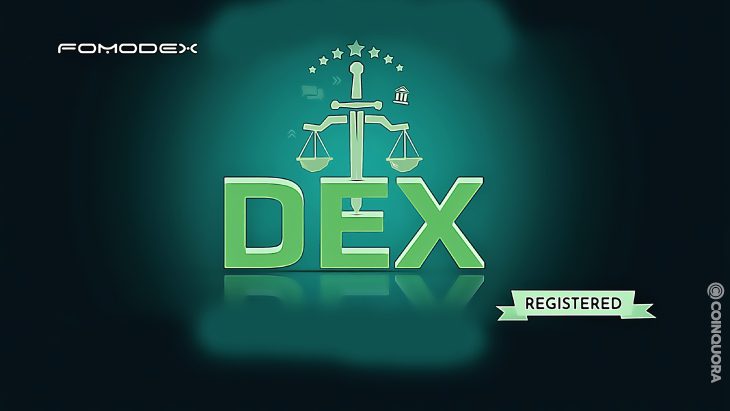- FomoDex, the first DEX to be registered under the laws of Wyoming and the United States.
- DEX provides the lowest fees to trade assets.
- Decentralized exchanges enable low counterparty risk.
Trading on decentralized exchanges has many advantages: users get complete control over their cryptocurrency, it’s a safer and more private choice, and traders incur lower fees as compared to centralized exchanges. No wonder it’s the future! And now, the U.S. is about to have its first regulated decentralized exchange platform.
With the uncertainty around centralized exchanges right now and the growth in demand for decentralized exchanges, there is a concerning but valid question doing the rounds: are DEX platforms the future of exchanges?
BitMEX, which is the world’s largest Bitcoin (BTC) derivatives exchange by volume, receivedindictments for its senior team, resulting in amassive pullout of coins from centralized exchange wallets. Some traders on other platforms felt that their exchanges would be sued and pulled out too, sending the value of the coins plummeting.
It may not have meant to, but this sparked a discussion around decentralized exchanges possibly being the future of exchanges. This is mainly because trading on DEXs is cheaper, which presents a significant risk to centralized platforms since traders are always looking for the lowest fees to trade assets.
There is also lower counterparty risk on a DEX because storing crypto assets on a centralized exchange or with a third party guarantees neither ownership nor safety. News of many centralized exchanges getting hacked are not uncommon, which simply isn’t the case with DEXs because cryptocurrency trades are strictly between two people through an automated, secure process without the intervention of a third party or institution.
It’s also financially inclusive rather than exclusive, meaning DEXs don’t restrict people from specific locations or jurisdictions from using their services. And, of course, there is not much left to be desired where privacy is concerned on a DEX platform; they don’t require too much personal information and generally don’t even put a user through a registration process.
All that said, DEXs are still in their early stages, which is why it’s still hard for them to get regulated in America. Generally, all cryptocurrency exchanges need to register as a national securities exchange in the SEC; needless to say, the process is time-consuming and expensive, so registration isn’t always a feasible option for startups.
However, unlike traditional exchanges, decentralized exchanges don’t have order books and custody of assets; it is simply a place where users come to transact directly with their peers without a central server or anybody overseeing the process.
For that reason, some may assume that a DEX claiming to be an “exchange” is misleading investors because they are giving the impression of meeting regulatory standards of a national securities exchange, which they do not. Still, how can it be regulated if there is no guarantee that the order books or other information are reliable? The interest of investors, new and old, are at risk.
The first DEX to face charges by the SEC was EtherDelta, co-founded by Zachary Coburn, for operating an unregistered securities exchange. Their crackdown raised a number of concerns and questions, all in favor of decentralized exchanges.
This is why it’s such a big deal to finally have a decentralized exchange regulated by the U.S.!
With a Wyoming State Incorporation, FomoDex has become the first DEX to be registered under the laws of Wyoming and the United States, giving the platform the credibility it deserves, allowing it to expand globally at a faster rate, and enabling access to sponsorships and massive marketing campaigns. Adoption by other jurisdictions will become easier since FomoDex is licensed and regulated under U.S. law.
The U.S. regulatory stamp essentially gives FomoDex the same legal power as any limited liability company, all thanks to a law that went into effect on July 1, 2021. It ensures an automated, streamlined process yet a democratized control of assets.
This becomes a real turning point for all DEXs, as this gives new hope to them and unlocks new possibilities. It could even become a standard someday, thereby creating a more efficient and democratic structure for investors with the security of knowing their platform is licensed and regulated.


